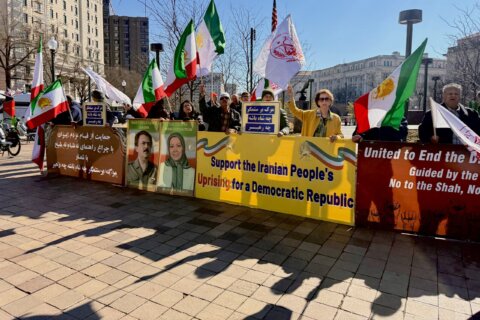All throughout May, WTOP is celebrating Asian American and Pacific Islander Heritage Month with stories about the people and places shaping the D.C. region.
It was well past lunch but not quite dinnertime Saturday afternoon on Mother’s Day weekend, but already a constant stream of diners were being seated quickly at the Blue Pearl Buffet in Springfield, Virginia.
Like a well-oiled machine, servers led people to their seats. As soon as they sat down and the server took their drink orders, eager customers stood up and headed to the buffet area, where a feast awaited.
At least twice, a round of “Happy Birthday” broke out, and many diners, including a family celebrating a relative’s graduation from a doctoral program, joined in the singing.
Just before 6 p.m., a large group of people, wearing traditional Hawaiian dress and clothing, arrived at the restaurant. Amazingly, the restaurant staff found a place for each person in the group.
“Let’s eat!” said Kaimana Chee, after leading the group from Hālau Nohona Hawaiʻi in a traditional song.
Members of the Hawaiian cultural school, located in Silver Spring, Maryland, had just finished a performance at John Lewis High School in Fairfax County. They were also celebrating the organization’s 10th anniversary by sharing Hawaiian music, dance and culture performances with the D.C. area, Chee said.
“We have visitors from Hawaii, from different parts of Hawaii, that came in from Maui,” he said.
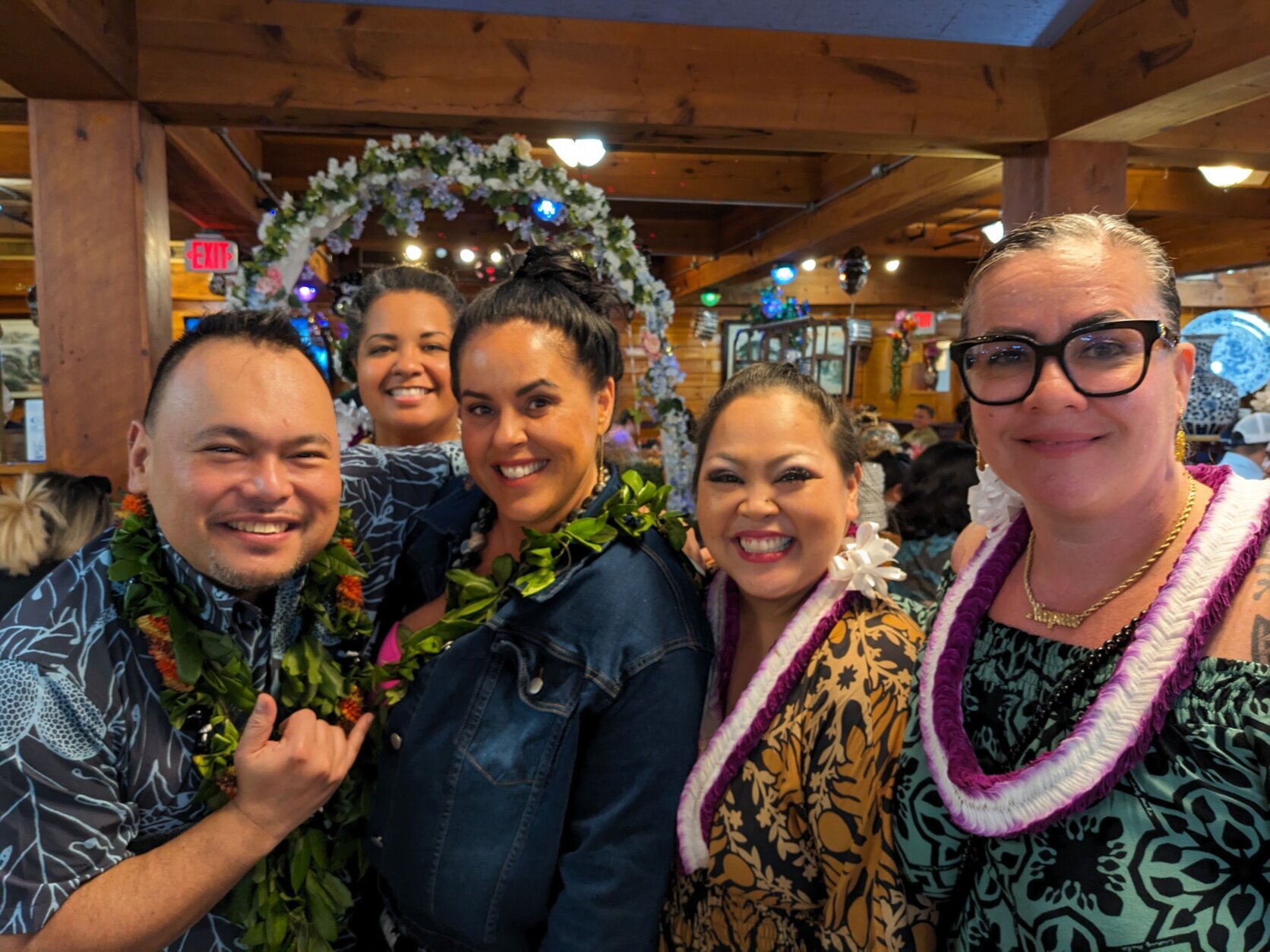
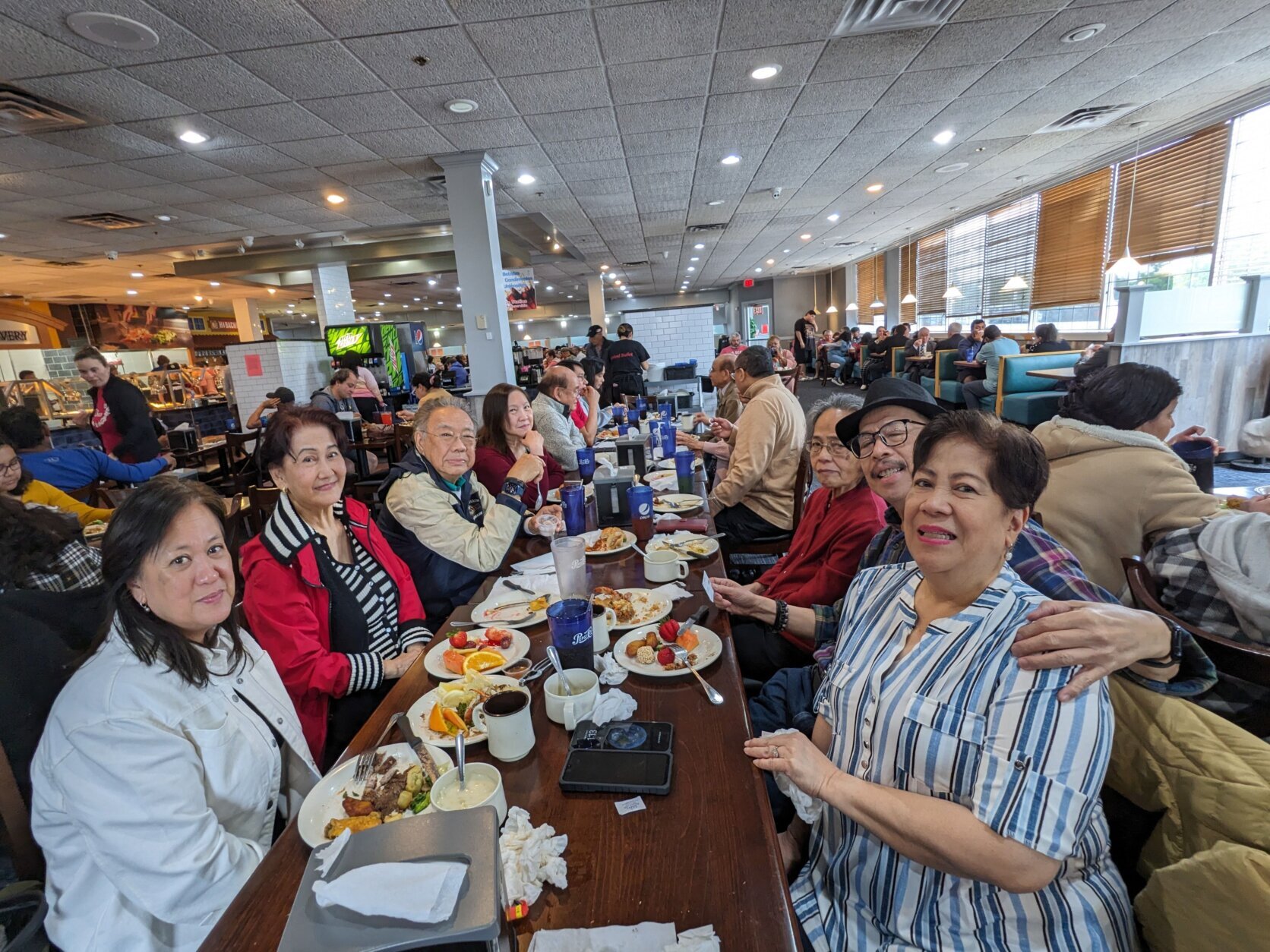
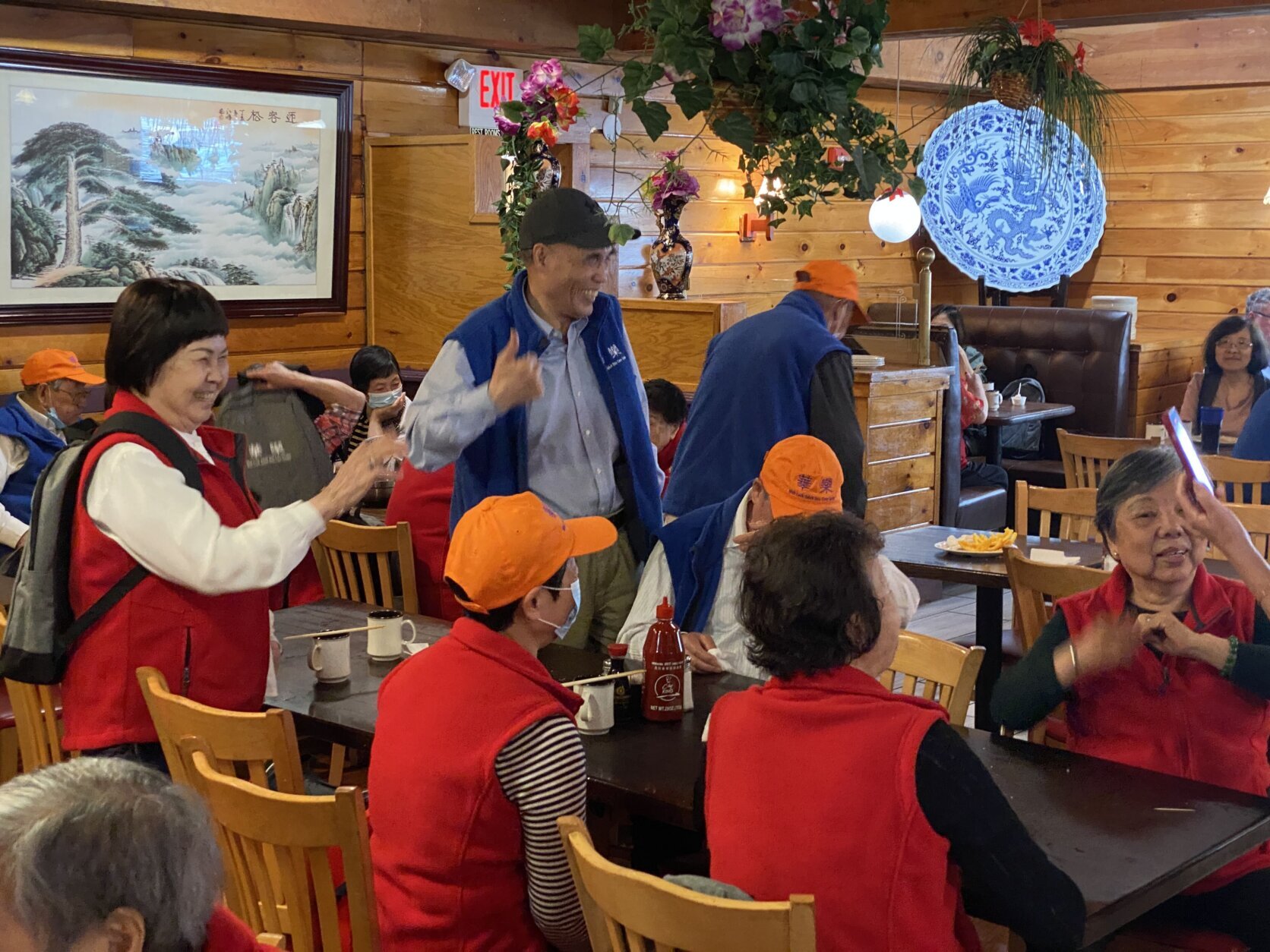
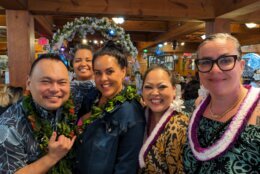
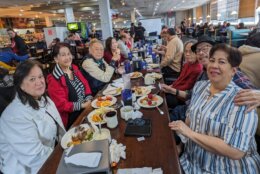
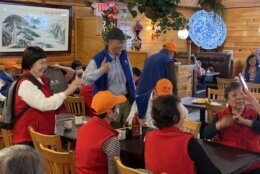
Peter Zen, one of the restaurant’s owners, said that he has witnessed many celebrations — from family reunions to first dates. He said that fewer than 10 people in a group is a good number when it comes to making sure the wait time is not too long, especially on a weekend. Luckily, Chee’s group did not have long to wait.
“We’re 70 people. So going to a restaurant and trying to get 70 people’s orders, we probably would be there all day,” said Chee, who also runs his own Hawaiian restaurant called Uncle’s in Fallston, Maryland. “We have one of these (Blue Pearl Buffet) in Silver Spring, and I thought the easiest way is to find a buffet.”
At the United Buffet in Woodbridge, Virginia, earlier this month, Peter Siapno and his family gathered together with several of his former co-workers.
Siapno worked for Kaiser Permanente in Virginia for 13 years before retiring to Baguio City in the Philippines. His daughter still lives in Virginia, and he and his wife were visiting. But before he returns to the Philippines later this month, he wanted to meet up at United Buffet with his former colleagues.
“It’s the best place to choose when you’re holding a party,” Siapno said. “Because if people come late, you don’t have to wait for them. … They can just go in and choose the food later. If you go into a restaurant, it’s a la carte, then everybody has to be there before you can start making orders.”
- Get a taste of Asian and Pacific Islander cuisine at this Fairfax Co. farmers market
- Purple Patch restaurant an homage to beloved Filipino culture in heart of DC
- How DC’s deputy mayor is uniquely positioned to lead Chinatown revitalization
Buffet restaurants took a hit during the pandemic. Zen said the Blue Pearl was closed for two years, and when places started opening up, regular customers would often call, asking whether they were open. But buffets have made a comeback, taking in $5.5 billion in 2022, according to Fortune.
The resurgence of a relatively inexpensive all-you-can eat buffet could be seen as appealing to consumers during a time when “inflation has driven up the cost of both groceries and restaurant meals,” a New York Times report said.
For Siapno and Chee, going to a buffet is part of their culture.
“You’re talking about Filipinos, you’re talking about food,” Siapno said. “Buffet is the middle name of all Filipinos.”
Chee said that eating is the love language of Pacific Islanders, especially Native Hawaiians.
“I think in a lot of Asian cultures, food is a way that we express love, respect and friendship,” Chee said. “When we share food with someone, it’s about connection. Because sometimes you may not have a lot to give, but everybody’s willing to share food. And I think it’s a characteristic of many AAPI cultures.”
Get breaking news and daily headlines delivered to your email inbox by signing up here.
© 2024 WTOP. All Rights Reserved. This website is not intended for users located within the European Economic Area.




